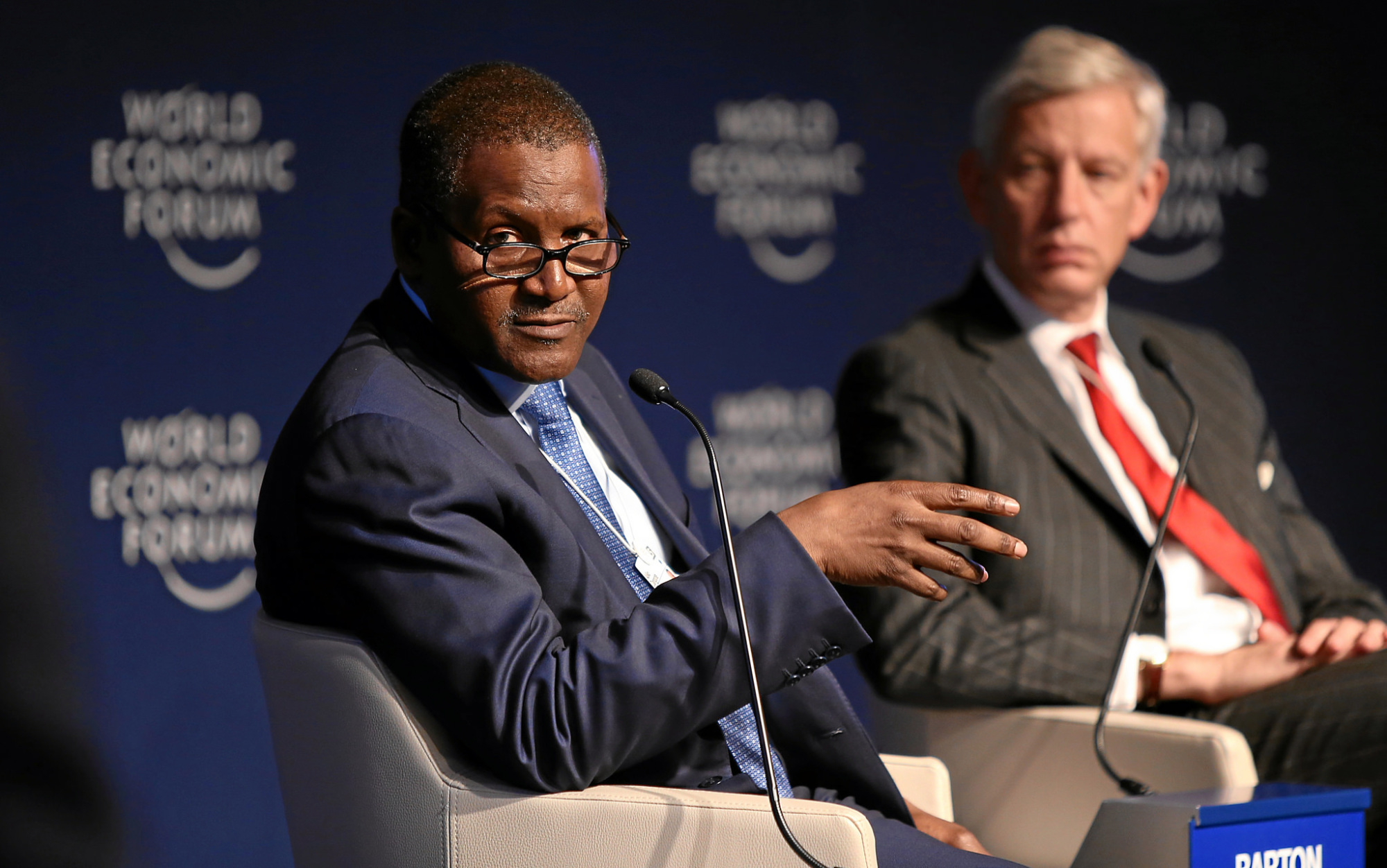Member Companies Influence Education on the Global Stage

Dangote Group’s Aliko Dangote along with McKinsey’s Dominic Barton speak at the World Economic Forum
As the international community convened last week at several key global events, including at the Education World Forum in London, the BETT Show in London and the World Economic Forum in Davos, private sector leaders and members of GBC-Education played an active role in contributing to the discussions. Below are four key ways that GBC-Education members influenced these important events.
-
Business leaders discussed the need to tackle the youth unemployment gap
McKinsey & Company’s Global Managing Director Dominic Barton and Dangote Group’s President and Chief Executive Officer Aliko Dangote spoke on the panel “Shaping Davos: Engaging Youth in Work.” The focus of this panel – youth and work – is one of the ten key issues connecting the Global Shapers Community in 40 cities worldwide as part of the Shaping Davos initiative. The panelists cited changes in technology and the nature of the work as contributing to the high rates for youth unemployment. Dominic Barton shared that higher education system is not educating students for employment by stating “the current education system . . . is not fit for purpose around the world.” Aliko Dangote agreed with Dominic Barton that there is the need for vocational and technical training, but also the need to create entrepreneurs. They both shared innovative ways that their companies are helping to generate jobs, such as through McKinsey’s Generation Pittsburgh program which focuses on training to be a Nursing Assistant and Dangote Group’s Dangote Academy to develop talent to fill the industrial skills gap.
Miss this event? Watch it here:
-
Business is using its core assets to strengthen capacity to assess learning outcomes
At the BETT Show in London, Hewlett Packard continues to “make it matter” when it launched its new, free global online course for the OECD’s Programme for International Student Assessment (PISA) for use by the world’s teachers and ministers of education. Supported by the OECD and Hibernia College, participants in this course will learn what PISA does and does not measure, and how to interpret assessment results. Certificates will be offered in the areas of reading, mathematics and science.

The BETT Show is also supported by Intel Education.
Miss BETT this year? Hewlett Packard shares 15 reasons to have attended BETT in 2015.
-
Business leaders discussed how to achieve quality education with ministers of education
Discovery Learning Alliance’s Tamela Noboa spoke at the Education World Forum, a convening of more than 80 ministers of education to discuss policy in education. She discussed how students are empowered to overcome barriers to quality education with the Discovery Project by sharing a video highlighting their work in Ghana, Kenya and Nigeria. Her plenary speech also included a focus on transforming partnerships in teaching and learning.
Tamela Noboa speaking now at #EWF2015 plenary about transformation of process and outputs @DiscoveryComm pic.twitter.com/nzuLnTTPWI
— discovery_learn (@discovery_learn) January 20, 2015
“Our partnerships need to be transformational not just transactional” Tamela Noboa #EWF2015@DiscoveryComm
— discovery_learn (@discovery_learn) January 20, 2015
-
Businesses shared their investments in education at the World Economic Forum in Davos
Pearson’s Chief Executive Officer John Fallon and Chief Education Adviser Sir Michael Barber shared the plans in Davos for Pearson’s five-year Project Literacy campaign, an initiative aiming to improve global literacy levels over five years. They also announced an additional $50 million that is being invested through the Pearson Affordable Learning Fund to support low-income learners and entrepreneurs in Africa, Asia and Latin America.
Varkey Foundation and the Global Education & Skills Forum, along with UNESCO and Dubai Cares, convened The Davos Summit for the Business Backs Education Campaign. The summit included a high-level roundtable discussing how the private sector should rethink employment for youth in the future.
Some GBC-Education companies and the UN Special Envoy for Global Education attended the session New Vision for Education at the World Economic Forum’s Annual Meeting in Davos. This WEF project focuses on identifying and closing gaps in K-12 education, and has a forthcoming report on the horizon.
Title Photo © World Economic Forum/Jolanda Flubacher
